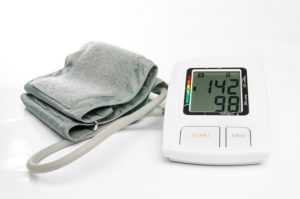 Blood pressure control is crucial in individuals who have survived intracerebral hemorrhaging as it could put them at higher risk for a repeat hemorrhagic stroke, this according to new findings.
Blood pressure control is crucial in individuals who have survived intracerebral hemorrhaging as it could put them at higher risk for a repeat hemorrhagic stroke, this according to new findings.
Researchers tracked the outcomes of 1,145 patients who experienced intracerebral hemorrhage. These patients survived a minimum of 90 days and were followed-up with after 37 months, while also having their blood pressure checked after three, six, nine and 12 months and then at six month intervals. 146 recurrent intracerebral hemorrhage events occurred within the follow-up period among the patients.
Advertisement
What researchers uncovered was the risk of a second hemorrhagic stroke increased among those who has uncontrolled blood pressure. Additionally, the higher a patient’s blood pressure was the more likely they were to experience a recurrent hemorrhagic stroke.
Authors of the study wrote, “In this observational single-center cohort study of intracerebral hemorrhage survivors, reported BP measurements suggesting inadequate BP control during follow-up were associated with higher risk of both lobar and nonlobar intracerebral hemorrhage recurrence. These data suggest that randomized clinical trials are needed to address the benefits and risks of stricter BP control in intracerebral hemorrhage survivors.”
Managing blood pressure is essential for overall good health – whether someone has experienced a hemorrhagic stroke or not. Easy ways to prevent and better manage high blood pressure include losing weight, exercise, eating well, minimizing salt, not smoking, avoiding stimulants like alcohol and caffeine and reducing stress.
The findings were published in the Journal of the American Medical Association.
Related Reading: 7 Natural ways to lower your blood pressure
